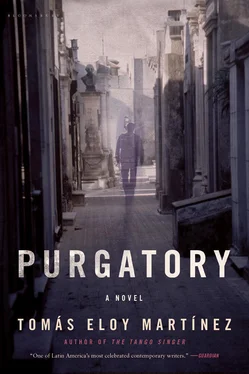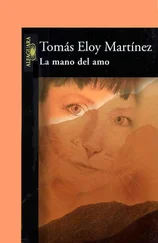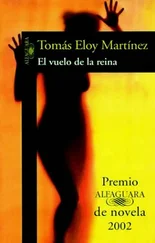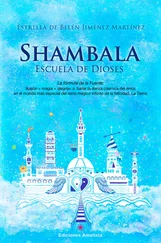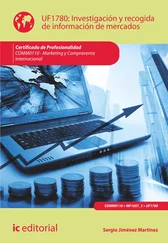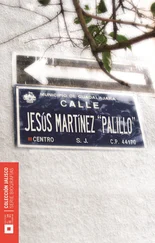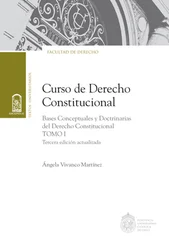Sometimes at the office, as her screen glowed with the colours of maps, print priorities and legends, Emilia would sit daydreaming about Simón whom she had not seen die. The death of a loved one is devastating. How much more devastating, then, was the death of someone you could not be sure was dead? How can you lose something not yet found? Emilia had seen the glimmer of an answer in a poem by Idea Vilariño dedicated to the man who abandoned her: I am no more than I now / forever, and you / now / to me / no more than you. Now you are not / and some day soon / I won’t know where you live / with whom / or whether you remember / You will never hold me / as you did that night / never / I will never touch you / I will not see you die.
Some years previously, someone had told her about a group of geographers who spent their winters in Nuuk, Greenland, mapping the effects of global warming and she had imagined Simón was on that expedition. It was a foolish fantasy, but for a few months, it had been a consolation. In the notebook where she jotted down her feelings, she wrote something that still pained her today: ‘If he came back, I would be able to see him die.’
During the Trial of the Juntas against the military leaders of the dictatorship, three separate witnesses claimed to have seen Simón’s body in the courtyard of a police station in Tucumán, his body showing clear signs of having been tortured, a bullet hole between his eyes. Emilia was in Caracas during the trials and did not know whether to believe the story or not. The witnesses seemed genuine, but their testimonies differed. She had been with her husband when he was arrested, her own testimony would have been very different from theirs: they had been arrested by mistake and released two days later, Simón a couple of hours before Emilia. She had seen Simón’s signature in the prison register indicating that he had left. Her father, Dr Orestes Dupuy, had checked the fact with the military governor himself.
To Emilia, her version was an indisputable fact. It was because she believed it that she did not set foot outside their San Telmo apartment in Buenos Aires for months, waiting for her husband to come home, waiting for him to call. She felt a terrible emptiness, spent the days staring out the window as the hours passed, learning by heart the relief map of the buildings, the shapes of the people moving behind their curtains. Her father had tried to persuade her to move back to the family home, but Emilia wanted things to be exactly as they had been when Simón was there. Every morning, she went to work at the Argentina Automobile Club, every evening when she came home, she made dinner, never forgetting to set two places at the table.
From time to time, she got distressing letters from people who claimed to have seen Simón on a street in Bogotá or Mexico City and demanded money in return for more information. There were phone calls, too, from people who told her that Simón was dead. These contradictory stories left her unable to sleep. She was still hopelessly in love and, what was worse, she realised it was a love that had no purpose, no object. Almost a year after Simón’s disappearance, by which time his name was barely mentioned, Emilia decided to distract herself and after much hesitation went to the Cine Iguazú to see Ettore Scola’s A Special Day , a film about a mother of six living in a seedy tenement building and her neighbour, a homosexual radio announcer, who care for each other as best they can while all the other tenants have left to go and take part in the parade to honour Hitler’s visit to Rome in 1935. The film had been running for about an hour when the air conditioning cut out. The afternoon was so humid that now the images were shrouded in a vapour that made them seem unreal. The air in the cinema became unbreathable, there was a sound of whistling, of feet stamping. Some of the audience got up and left. A woman who seemed to have just arrived came over and sat in the seat next to Emilia so abruptly she knocked over her handbag. As Emilia leaned down to pick it up, the woman hissed: ‘They murdered your husband in Tucumán just like they did mine. My husband died under torture. Yours got five bullets in his chest and one between the eyes to finish him off. We can’t go on like this, like nothing’s happened.’ ‘I don’t believe you,’ Emilia said. ‘You’re just a subversive.’ ‘I’m doing you a favour,’ the woman insisted, ‘I’m not asking you to do anything. In this country, we’re all dead already.’ At that moment, the house lights went out again, the air conditioning came on and the film started up. Somebody in the row behind them whistled. The woman got up and was lost in the darkness, Emilia moved to another seat where she sat, her whole body rigid, until the film was over.
More than once she had heard people tell her father that political subversives — who had been all but wiped out — were prepared to tell people anything they wanted to hear if they thought they could win them over to the cause. Obviously, this woman was one of them and, although Emilia dismissed what she had said as lies, she was haunted for a long time by the image of Simón’s body lying broken in a courtyard like a dog. She couldn’t stop herself picturing him lying with a bullet hole in his head, black with flies and with soot from the chimneys of the local sugar mills. The image went with her everywhere, as though her whole being was subsumed within this dead man whom no one had mourned, no one had buried. But she remained convinced Simón was still alive. Maybe he had lost his memory, maybe he was in a hospital and unable to get in touch.
Three days later, she was woken by the telephone.
‘It’s Ema,’ said a distorted voice.
‘Ema who?’
‘Ema, the woman from the cinema.’
‘Oh, you,’ Emilia managed to say. ‘Those things you said, they’re not true. I read the police report again. My father checked the facts himself.’
The voice on the other end of the line suddenly became bitter, mocking.
‘And you believe your old man? If he had his way, we’d never get out of this ocean of shit. There are thousands of women like you and me. Husbands who have disappeared, sons who never came back. We’ve lost so many. ’
‘Simón is alive. We’re not involved in anything, so there’s no reason for them to do anything to us. I haven’t lost anyone.’
‘Oh, but you have. And you’ll spend the rest of your life wondering why your husband never came back. And when you finally accept the fact that he’s dead, you’ll still wonder where they buried him. I would give anything just to be able to kiss my husband’s bones.’
Trembling, Emilia put down the phone. She didn’t know what to think. A few days earlier, taking the bus home, some woman had dropped a leaflet into her lap. As the woman had looked like a beggar Emilia paid no attention. She was about to give back the flyer when the woman got off the bus and disappeared into the crowd. Absent-mindedly, Emilia read a paragraph: ‘Between 1,500 and 3,000 people have been massacred in secret since the passing of the law forbidding the reporting on bodies being discovered.’ It was lies. All the newspapers said the exiliados were telling lies about the country. The flyer was proof. She ripped it in two and threw it on the ground.
At work that morning, in the mapping department of the Argentina Automobile Club, she was overcome by an intense feeling of unease. She hated this Ema. Your father is a shit . How could this woman say such things? No one questioned the integrity of Dr Dupuy. On his deathbed General Perón himself had heaped praise on him: ‘Read Dupuy,’ he had said. ‘He has written the most accurate analysis of my actions in government. And not just mine: he has proved himself the finest analyst of all governments.’
Читать дальше
